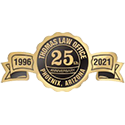Phoenix Bankruptcy & Debt Discharge Lawyer Answers Bankruptcy Questions
May 8, 2015
Being unemployed, suffering from a serious medical condition, making a bad investment or going through a divorce can cause a major upheaval in your financial circumstances. When you aren’t able to pay your bills, you may find yourself drowning in debt. Bankruptcy was created to give people a fresh start. Phoenix bankruptcy attorneys can explain your rights and help you figure out if bankruptcy is the right solution for you.
Filing for Bankruptcy
One of the major benefits of filing for bankruptcy is that an automatic stay provision protects debtors from creditors. According to the automatic stay, creditors must stop foreclosure proceedings, property repossession, lawsuits, phone calls, wage garnishment and other attempts to collect payment of debts. If creditors violate this provision, the Phoenix bankruptcy attorneys representing you can request that the creditors be sanctioned by the court.
Debts Eligible for Discharge
When the bankruptcy court discharges a debt, you are no longer required to pay it. Creditors are permanently prohibited from demanding payment for discharged debts. Debts that are often discharged in a bankruptcy case are unsecured debts such as credit cards, medical bills, personal loans, deficiency balances for repossessed property and certain civil court judgments.
Non-dischargeable Debts
Individuals remain responsible for debts that aren’t discharged by the court. Non-dischargeable debts in a bankruptcy case may include child support, alimony, court fines, debts incurred through fraud, personal injury judgments related to drunk driving, student loans (unless it imposes severe undue hardship) and debts not listed in the bankruptcy petition.
Contact Phoenix Bankruptcy Lawyers for Legal Advice
Dealing with an overwhelming amount of debt can be stressful and may jeopardize the financial future of you and your family. The attorneys at Thomas Law Office, PLC, use their expertise to assist clients with their debt problems and guide them through the bankruptcy process. Call us to schedule a private consultation.
Q: What is the difference between chapter 7 and chapter 13?
A:
The basic difference between Chapter 7 and Chapter 13 is this: in a chapter 7 case, you discharge your debt in one fell swoop and lose any un-protectable assets. In a chapter 13, on the other hand, you make payments to your creditors for a period of three to five years. Ordinarily, most Arizona clients would rather file a chapter 7 because it’s faster, easier, and much cheaper. But there may be reasons why either you cannot or should not file a chapter 7. One example is if you make too much money to qualify for a chapter 7. Another is if you want to force your mortgage, vehicle, or other secured lender to let you cure your default over a long period of time. There are lots of other reasons as well. Check with us to determine whether you should file a chapter 7 or chapter 13.
Q: How long will my bankruptcy case last?
A:
The typical chapter 7 bankruptcy case in Arizona lasts approximately five months. But you will see results immediately, because on the very day your bankruptcy petition is filed with the Arizona Bankruptcy Court, something called the “automatic stay” is invoked. This is a freeze on all creditors’ efforts to collect from you. They can’t sue you. They can’t garnish your wages. They can’t seize your bank account. They can’t foreclose your house. They can’t do any of those things as well as a host of other things without first getting permission from the Arizona bankruptcy court, which is typically impossible unless you are defaulting on post-bankruptcy-petition, secured obligations or some other rare exceptions apply. The typical chapter 13 bankruptcy, on the other hand, lasts five years. If you qualify, shorter periods may be possible.
Q: Will I lose my house in bankruptcy?
A:
Most people who file bankruptcy in Arizona are able to keep their homes. In Arizona, the homestead exemption is either $150,000 or a slightly lesser amount if you recently purchased the home (call us for details). However, if you are in arrears on your payments on the day we file your bankruptcy case, the creditor will most likely take swift action to obtain the Arizona bankruptcy court’s permission to proceed with a foreclosure. On the other hand, most people who are not behind on payments on the date their case is filed and who continue to make timely payments are rarely in trouble of losing their homes in Arizona if they reside in them on the date the bankruptcy case is filed and have equity less than the relevant limits stated above. Notably, if you are one of those people whose income exceeds the median for your household size, you will have to take the means test unless you fall within one of the few exceptions. Having a mortgage payment will help you to pass the means test, because you will get to deduct the full cost of the mortgage in the means test calculations.
Q: Can I get rid of my mortgage in a bankruptcy?
A:
In Arizona, if you file a chapter 7 bankruptcy, you will not be able to strip away the mortgage debt and keep the house. If you want to keep the house, you’ll have to find a way to make those mortgage payments. If you are filing a chapter 13 and you have a completely unsecured second or third mortgage, you will be able to strip it away so that it is no longer a lien on your residence. But the following situation must be true for this to happen: your first mortgage balance is so high that it exceeds the value of your home. Thus, the entire amount of your second mortgage (or third) is not covered by any of the value of your home. Stated differently, if you hypothetically sell your home and not even one dollar would be available to pay the second or third mortgage, you should be able to remove that mortgage. Likewise, if you have investment properties you may be able to either reduce or entirely remove liens (including mortgages) against that investment property.
Q: Will I lose my car in bankruptcy?
A:
If you are using the Arizona exemptions, a married couple will be able to keep two vehicles provided that the equity (not the value of the car, but the value of the car minus the loan balance) in those cars does not exceed $10,000 (up to $5,000 per car). If there are more than two vehicles, a married couple may be able to keep all of them in certain circumstances. If you are one of those people who needs to pass the means test in order to qualify for a chapter 7 bankruptcy, having a car payment will help you to pass that means test.
Whether you will lose your car in an Arizona bankruptcy case also depends on whether Arizona’s exemptions will be used. Assuming the Arizona exemptions will be used, a married couple may keep up to two vehicles that have not more than $10,000 in equity (up to $5,000 per vehicle). A single individual may keep up to one vehicle that has not more than $5,000 in equity. Equity is the key, not value. Suppose your car is worth $30,000 but your car loan balance (assuming the loan is properly secured by the vehicle) is $31,000. In that case, your vehicle has zero equity so you would be able to keep that car as long as you remain current on your payments. See the discussion on reaffirmations for more information about how secured loans are affected by bankruptcy. If you are filing a chapter 13 bankruptcy in Arizona rather than a chapter 7 bankruptcy, you will not necessarily lose the vehicle even if your vehicle has more than the allowed equity. This is because a chapter 13 involves payments to creditors and if you will be paying out more than the value of what you would lose from seizure of your car in a hypothetical chapter 7 case in Arizona, you should be able to keep your vehicle despite the fact you have exceeded the Arizona exemption limit for that vehicle.
Q: Can I stop paying my creditors?
A:
Typically, you can stop paying unsecured creditors when you are going to be filing a bankruptcy soon. When specifically to stop making payments will vary from client to client. Be careful to continue making payments on loans that are secured by collateral you wish to keep. If you’ve already fallen far behind on such secured loans, you should contact our office immediately to see if a chapter 13 bankruptcy would solve your problem by enabling you to catch up those payments over time.
Q: What are the Arizona exemptions?
A:
The Arizona exemptions can be found at
https://www.azleg.state.az.us/ArizonaRevisedStatutes.asp?Title=33.
Q: I moved here from another state. Do the Arizona exemptions apply
A:
The Arizona exemptions do not apply if you have lived in Arizona less than two years. You will need to use the exemptions from the jurisdiction you last lived in if you lived in that jurisdiction for more than two years. And you may not even qualify to use that state’s exemptions and if so, you may have to use the federal exemptions. If you lived in the other state there for less than two years, too, call our office for a careful analysis of which exemptions to use. Determining whether exemptions apply is critical to a proper analysis of whether bankruptcy is right for you. Never rely on general rules such as are provided here; rather, you will need to meet with an Arizona attorney to carefully determine which exemptions apply and whether or not you have a choice between two sets of exemptions.
Q: What are the exemptions in my former state?
A:
If you moved here from Arizona less than two years ago, you will probably need to use a different set of exemptions. If you lived in the other state for more than two years continuously, then that state’s exemptions (or the federal exemptions, if applicable) must be used, unless you don’t even qualify to use their exemptions. If you lived in various states over the past couple of years, we must carefully determine which state’s exemptions apply or whether you must use the federal exemptions. During your in-office consultation, we will determine which exemptions apply.











Serving Phoenix, Scottsdale, Mesa, Tempe, Paradise Valley, Glendale, Peoria, Surprise, and the Greater Phoenix, Arizona Metropolitan Area

